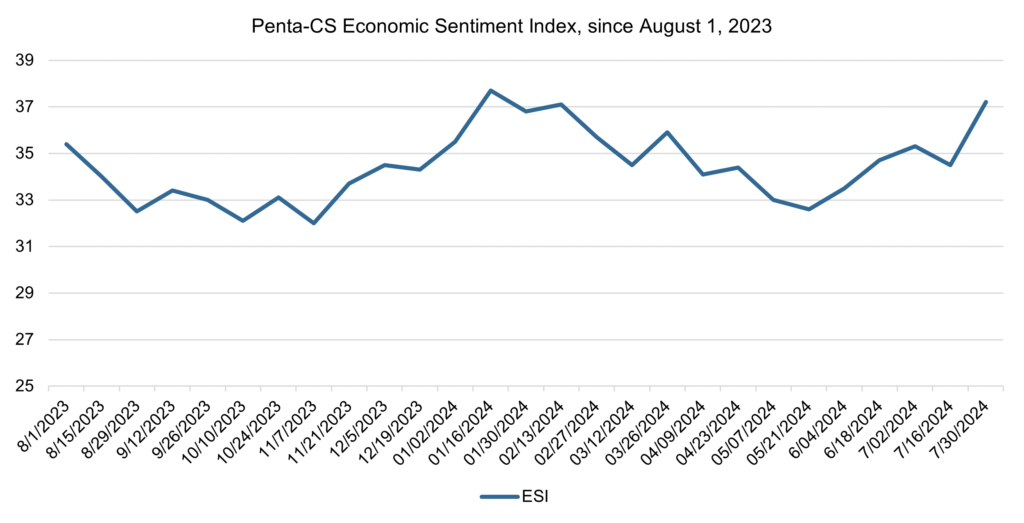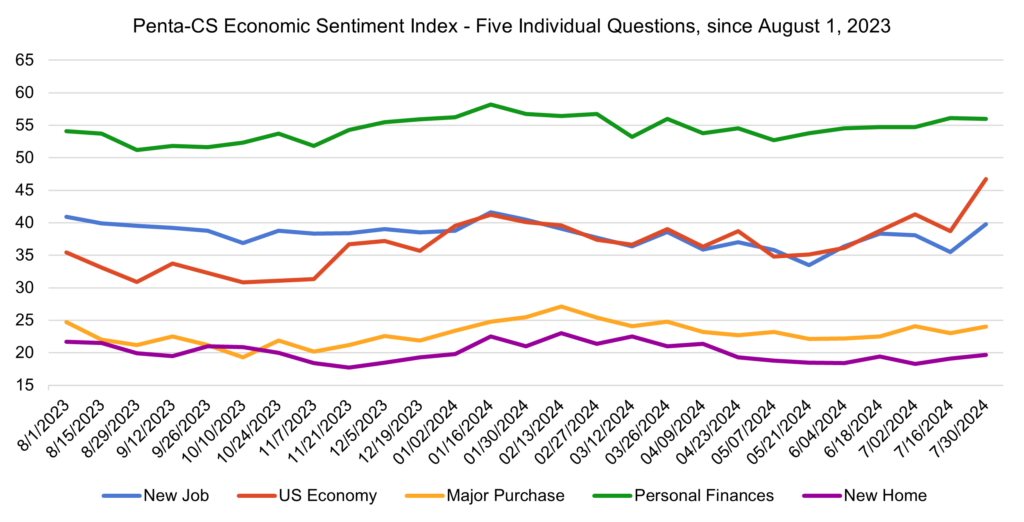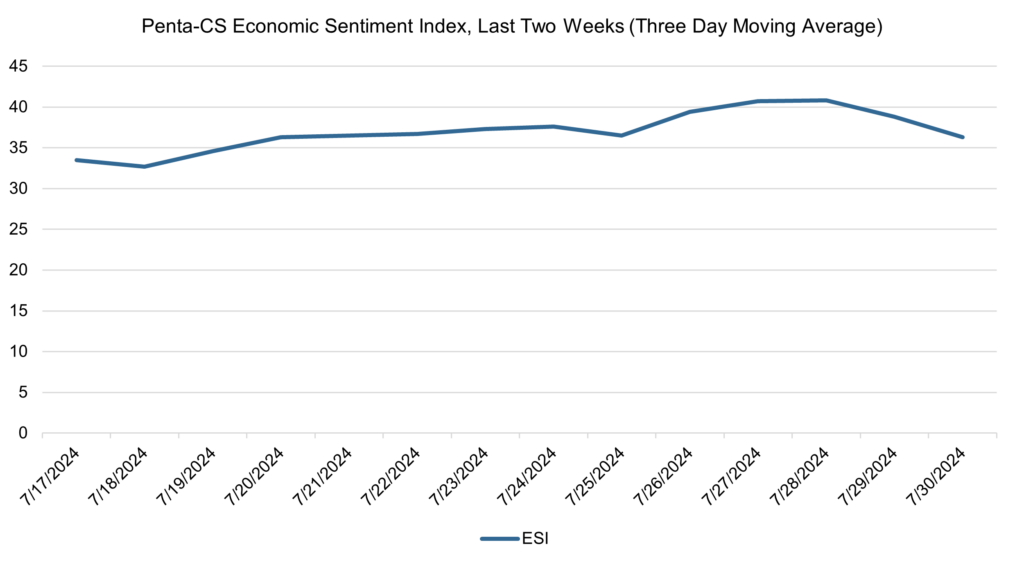A record-breaking two weeks for economic sentiment
Economic sentiment posted a huge increase over the last two weeks, rising to its highest point in over a year. The Penta-CivicScience Economic Sentiment Index (ESI) rose 2.7 points to 37.2. Notably, confidence in the overall U.S. economy skyrocketed 8.0 points to 46.7—the biggest single-reading jump of any indicator in the ESI’s 11-year history.

Four of the ESI’s five indicators, including confidence in the overall U.S. economy, increased over the past two weeks.
—Confidence in finding a new job increased 4.3 points to 39.8.
—Confidence in making a major purchase increased 1.0 points to 24.0.
—Confidence in buying a new home increased 0.6 points to 19.7.
—Confidence in personal finances decreased 0.1 points to 56.0.
The Bureau of Economic Analysis reported that U.S. real GDP increased at an annual rate of 2.8% in the second quarter of 2024. This increase is double the 1.4% increase realized in the first quarter of 2024 and was well above economists’ predictions of 1.9%. Though this data is preliminary and will be revised, it does represent the continued strength of the U.S. economy in the face of economic headwinds such as stubborn inflation and high unemployment.
Per the BEA, this increase in real GDP can be attributed to increases in consumer spending, private inventory investment, and nonresidential fixed investment. Specifically, consumer spending, which makes up over two-thirds of the economy, increased at an annual rate of 2.3% in the second quarter of 2024. This represents an increase from 1.5% reported in the first quarter of 2024.
The Bureau of Labor Statistics released its Job Openings and Labor Turnover Summary which reported that the number of job openings in June remained relatively unchanged from May, with 8.1 million available positions this month. Hiring decreased by 0.2 percentage points from May to June, with 314,00 less hires this month compared to last. Total separations also decreased by 0.2 percentage points, with 302,000 fewer separations month-over-month.
Economists are predicting that the Fed will likely hold interest rates steady at its two-day meeting that began on Tuesday, July 30 and likely opt to decrease rates at its September meeting. However, some economists are questioning whether waiting until September is too late given the high unemployment rate. The June jobs report showed that the unemployment rate increased to 4.1 percent, the metric’s highest level since November 2021.

The ESI’s three-day moving average began this two-week stretch at 33.5 on July 17. It then decreased to a low of 32.6 on July 18 before climbing to 37.4 on July 24. The three-day moving average then fell slightly before rising back up to a peak of 41.2 on July 27. Finally, it decreased to 36.9 on July 30 to close out the session.

The next release of the ESI will be Wednesday, August 14, 2024.